專欄
由深山傳唱入天際 霧鹿部落射耳祭紀實 From the Deep Mountains to the Sky, They Sing: Documentary of MaLa-Hodaigian in the Wulu Tribe.
黎明前的槍鳴劃破了深山裡的寂靜,也宣告著霧鹿部落的族人們,布農族一年之中最隆重、盛大的祭典-射耳祭即將開始。
The gunshot before dawn pierced through the silence in the mountains, announcing to villagers that the Bunun tribe's grandest festival of the year, MaLa-Hodaigian, was about to begin.
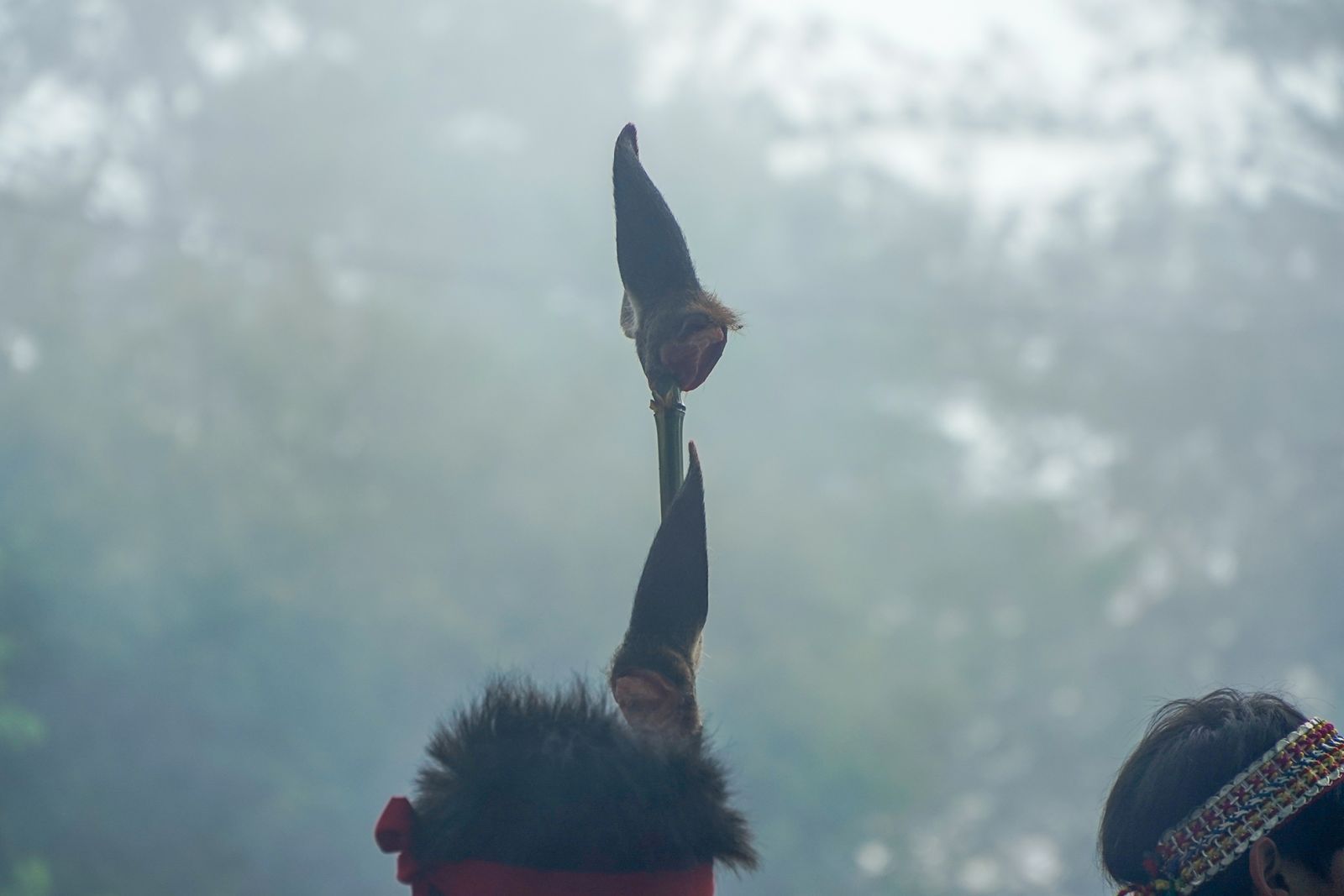
Bulbul霧鹿部落,位在群山環抱的南橫公路187公里處,海拔七百多公尺。Bul bul是布農族語意指水從地上冒出來「虎轆虎轆」的聲音,又一說意指四周積水的山谷盆地,當年族人初抵此地時,是一座位於新武呂溪畔高位河階上的沼澤,時時有鹿群徘徊草叢覓食。霧鹿部落是布農族人自南投、花蓮移入的重要據點,布農族人也由此逐步移居至高雄地區。現今海端鄉有不少居民是由霧鹿移入的,因此有不少布農族人認為霧鹿聚落是海端地區傳統文化的發源地。
The Wulu tribe, Bulbul, is located at 187 kilometers of Southern Cross-Island Highway with an altitude about 700 meters. Bulbul means the sound of water emerging from the ground in the Bunun language, and it is also said to mean a basin in a valley surrounded by water. When the ancestors first arrived in this area, it was a swamp on a high terrace of XinwuLü River. Herds of deer often wandered through the grass for food. The Wulu tribe was an important immigration stronghold for the Bunun people from Nantou and Hualien, and the Bunun people gradually immigrated to the Kaohsiung area from there. Nowadays, many residents in Haiduan Township were from Wulu, so many Bunun people believe that the Wulu tribe is the birthplace of the traditional culture of the Haiduan area.
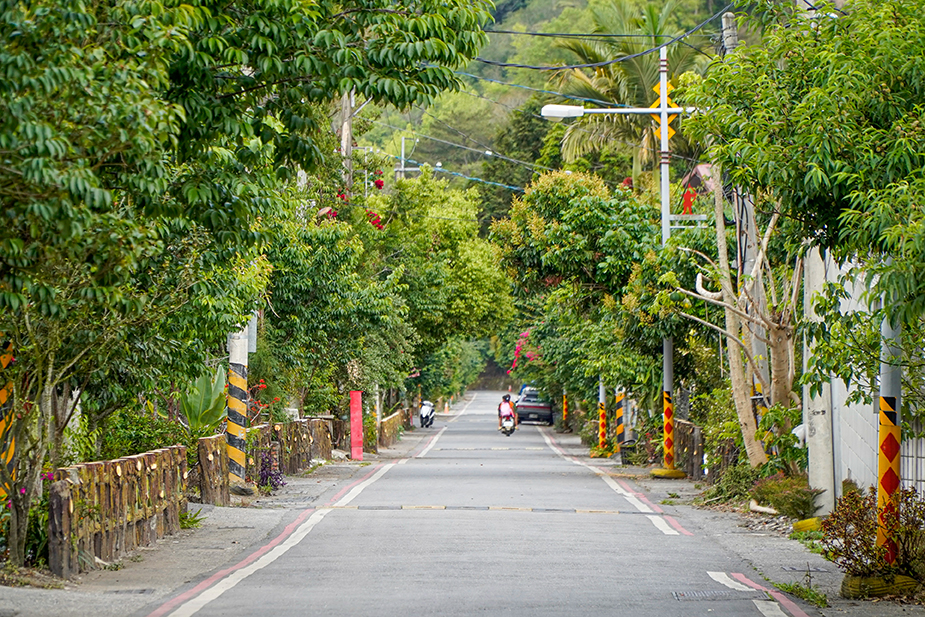
隨著槍鳴,族人們陸陸續續穿著傳統族服抵達祭場,各家的爸爸帶領著家中的小男孩在傳統屋前廣場集合,由年紀最幼小先開始,由長輩帶領拉開弓弦,一箭射向牆上的山肉。 部落耆老Biung(漢名:余錦龍)說道:「帶領小孩子射這個山肉,是要給小孩子勇氣。因為我們布農族的男孩在長大以後一定要跟著老人家學的第一件事就是狩獵!」所有的小男孩們拿起所射到的後腿山豬肉後,便與大人們一同前往獸骨屋慶祝。
As the gun fired, people wearing traditional costumes arrived at the ceremony one after another. Fathers led their little boys to the square in front of the tradition house. Starting with the youngest, the boys shot an arrow at the meat on the wall with the help of the elders. Biung (Chinese given name: Yu Jin-Long), a tribal elder, said, “Guiding our children to shoot this meat is to give them courage. Because the first thing we Bunun boys must learn from the old when they grow up is hunting!” After all little boys took the boar hind leg meat they shot, they went to the beast-bone house to celebrate with adults.
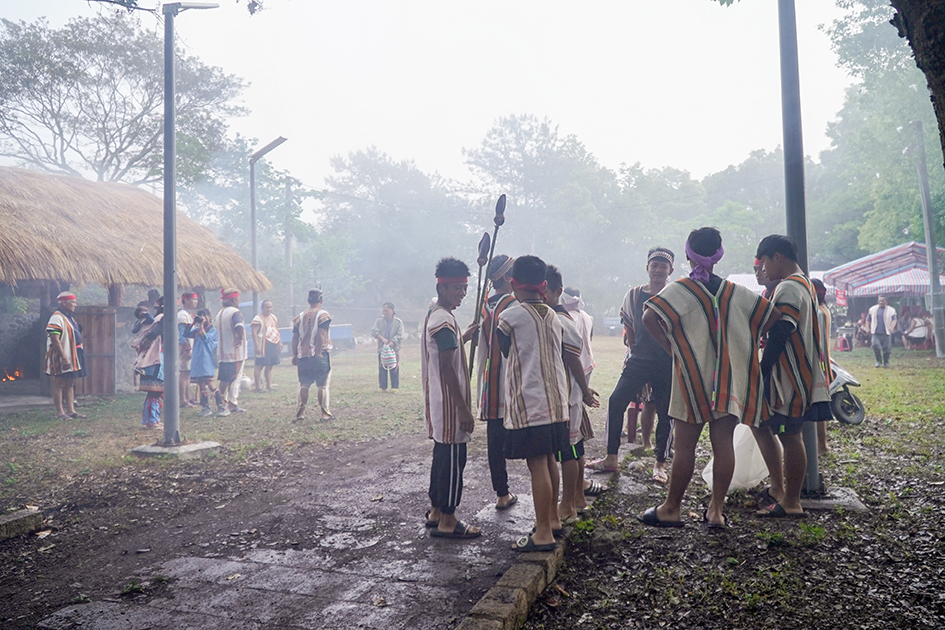
全體部落的男性到了祭場的獸骨屋前,祭師開始準備起火運用三種木材所燒出的濃煙與霹靂帕拉的燒柴聲,祈求興旺與豐收。祭場的獸骨屋內陳列著成排的山豬頭骨,部落耆老Biung說道:「因為我們布農族是狩獵的民族,只要狩獵到的山豬下顎、頭顱就會放過去,向祖先祈福,因為這都是祖先給我們的,不是因為我們很厲害,也在祖先面前說我們是狩獵的人。而這個區域也是很禁忌的區域,只有男人可以進來,進來了就不能出去直到祭典結束。如果你是祖靈不認識的人,進來的話很有可能會發生事情。」
When all males in the tribe arrived at the beast-bone house in the ritual site, the priest began to prepare for the fire. Burning three types of wood, he used the smoke and the sound to pray for prosperity and a good harvest. The skulls of the boars were displayed in rows in the beast-bone house. The tribal elder, Biung, said, “Because we Bunun are a hunting tribe, we put the jaws and skulls of the boars we hunt in the house to pray to our ancestors. These are all given to us by our ancestors, not because we are good. And we also say we are hunters in front of our ancestors. This is a forbidden area, only men can enter. Once you come in, you cannot get out until the end of the ceremony. If the ancestors don’t recognize you, something might happen if you enter.”
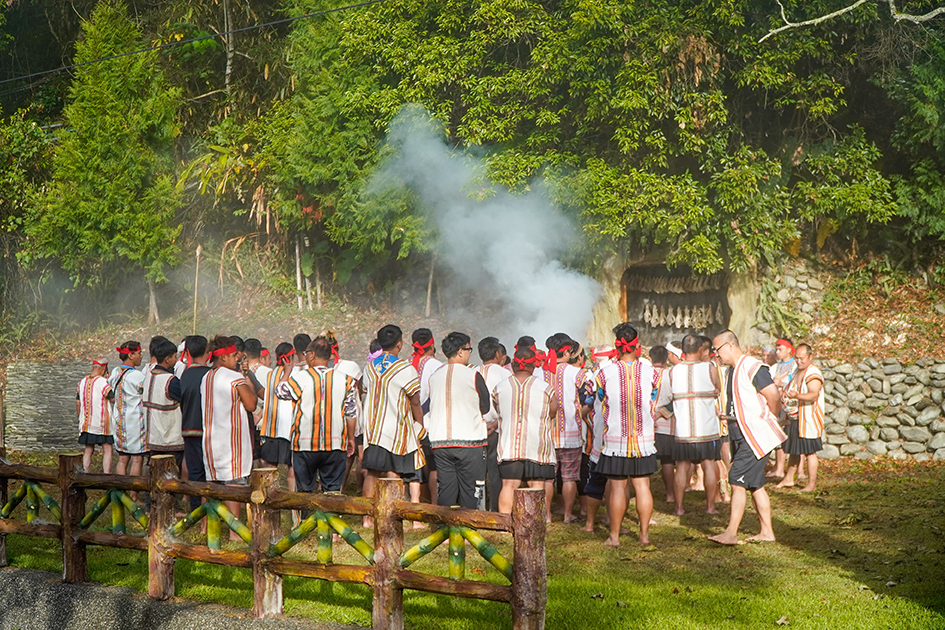
部落青年數算著祭場內參與的男丁,因為若是在分肉時不論是多一份或少一份都會是被認為是不好的象徵。在濃煙中族人拿起了獵槍,射向細樹枝上的鹿耳,不論有沒有射中一人一槍祈福來年的豐碩。在確認每一位在祭場參與的男士們都有分配到肉後,人人抓起了一把小米撒向獸骨屋,向祖靈祈福,保佑族人、保佑作物,等到明年我們族人依然還是記得會獻給祖靈。
The youth counted the number of men who participated in the ceremony, as it was considered a bad sign if there was more or not enough when distributing meat. Amidst the smoke, the tribesmen lifted up their hunting rifles and shot at the deer ears on the twigs. Whether they hit or not, every one shot once to pray for a fruitful year. After confirming that every participant had their meat, everyone grabbed a handful of millet and spread it to the beast-bone house, praying to the ancestral spirits for blessing the clan and the crops. We would still remember to offer to the ancestral spirits the next year.
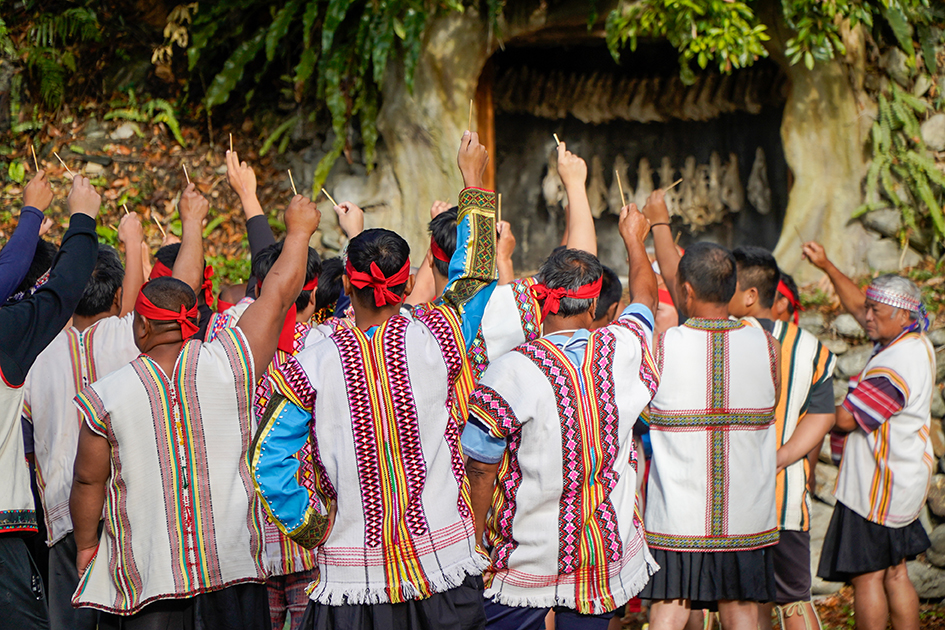
而在祭場外,婦女也沒閒著,燒紅炭火準備讓從祭場返回傳統屋廣場的男人們的過火儀式。將炭火向外撥開、腳步跨過炭火,象徵著把過去這一年的痛苦全部忘掉。「為什麼要過火?因為只有火可以帶來改變,過了火,祖先說好了沒關係,祝福我們新的一年不在煩惱,快快樂樂的。」部落耆老Biung補充道。
Outside of the ritual site, women were not idling. They were burning charcoals and preparing the firewalking ceremony for the men returning to the tradition house square. By spreading the hot coals and stepping over them, it symbolizes the forgetting of all the pain of the past year. “Why is it necessary to firewalk? Since fire is the only thing that can bring change. After the firewalk, the ancestors would say that all is fine and bless us with a happy new year without any troubles.” Biung added.
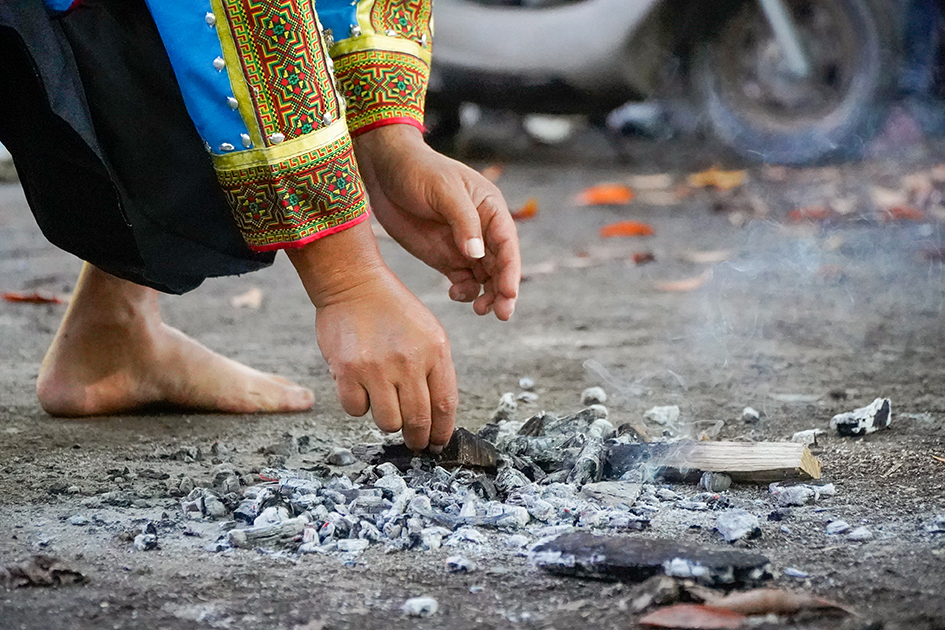
過火後便列隊等待祭師祈福,只見祭師輕輕按著每一位的脖子在耳邊吹了一口氣後祝福,一位接著一位直到所有的族人都接受到祝福為止。部落耆老Biung說:「因為耳朵是我們最靈的地方,所以要時時提醒,提醒你,你不要做錯事情,要按照你心裡自己的想法去做。吹耳朵,是把我們布農的靈魂吹進去,給他們保佑,不要耳聾不聽我們內心的聲音。」
After the firewalking, they lined up and waited for the priest’s blessing. The priest gently pressed on each one's neck, blew air into their ears, and then blessed them, one after another until all the tribesmen had received the blessing. The tribal elder Biung said, “Since the ear is our most spiritual body part, it is important to remind ourselves all the time that we should not do anything wrong. Do things from your heart. By blowing into the ears, we are blowing the souls of our Bunun into them and blessing them, reminding them not to be deaf and ignore our inner voice.”
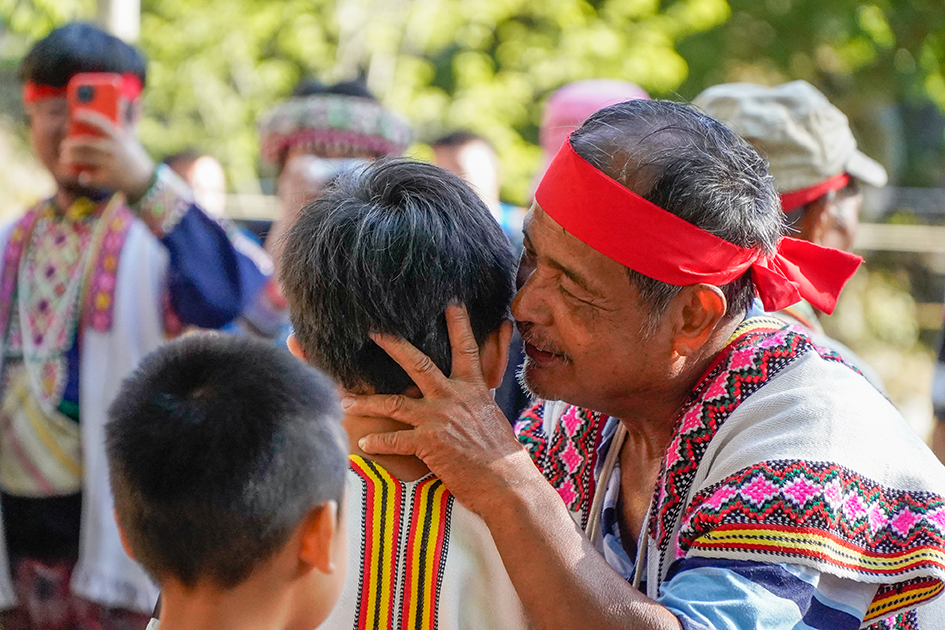
吹耳朵祈福後,部落男士面對面圍成一個大圓手拉著手在傳統屋前的廣場祈求小米豐收Pasibutbut。Pasibutbut,意指祈求小米豐收因音似八部因而轉譯成為了我們所熟知的八部合音。pasibutbut是布農族人與上天的連結,逐漸爬升的樂音猶如小米的成長蛻變般祈禱著豐收。族人相信歌聲越好,上天越高興,今年的小米就會結實纍纍。
After blowing their ears for blessing, tribal men face each other in a big circle and hold hands in front of the tradition house. They sang Pasibutbut to pray for a good harvest of millet. Pasibutbut is translated into the well-known eight-part polyphony because it sounds like there are eight parts of music. Pasibutbut is the link between the Bunun and the gods. The gradually increasing frequency is like the growth and transformation of millet. The people believe that the better they sing, the happier the god will be, and the millet will be fruitful this year.
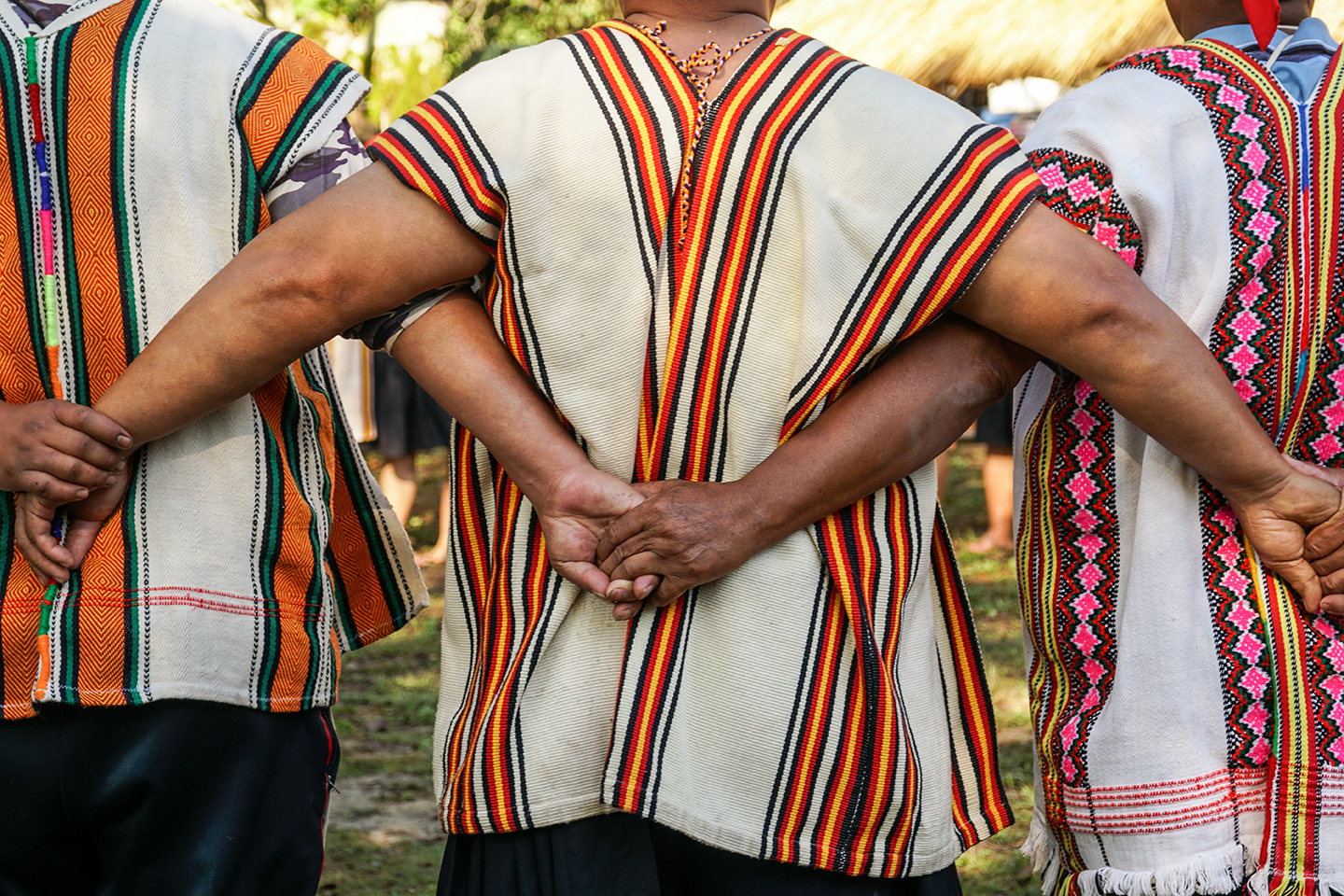
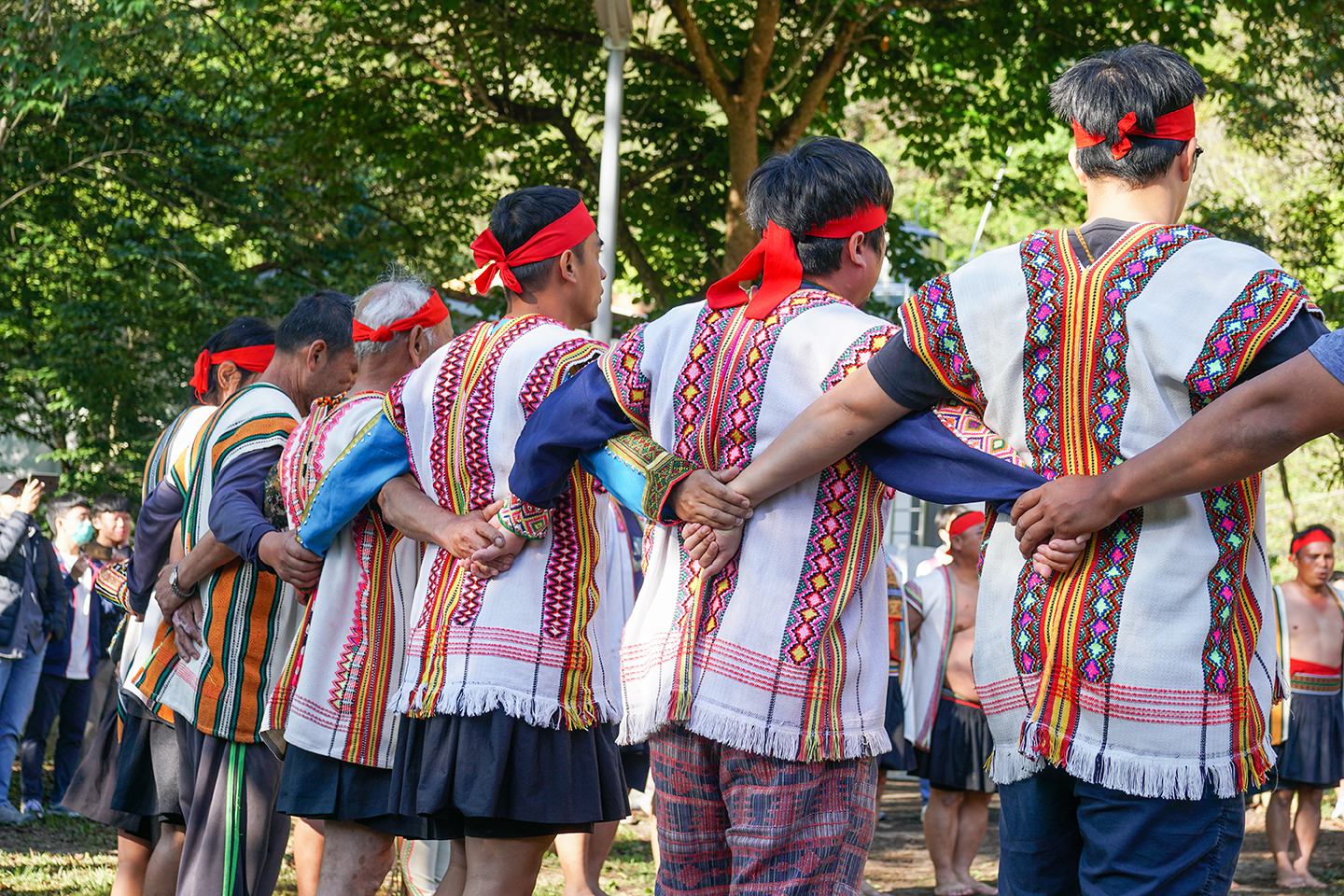
「當老人家覺得說真好聽,達到一個高點的時候,便會把大家拉到傳統屋裡面做結束,接著在裡面唱飲酒歌、報戰功。」 布農山地傳統音樂團團長kavas(漢名:余國立) 向我們說道。
“When the elders feel that the music sounds really good and reaches the peak, they will pull everyone inside the tradition house to finish. They then sing the drinking song and report their merits.” Kavas (Chinese given name: Yu Guo-Li), the Bunun Mountain Traditional Music Chorus leader, told us.
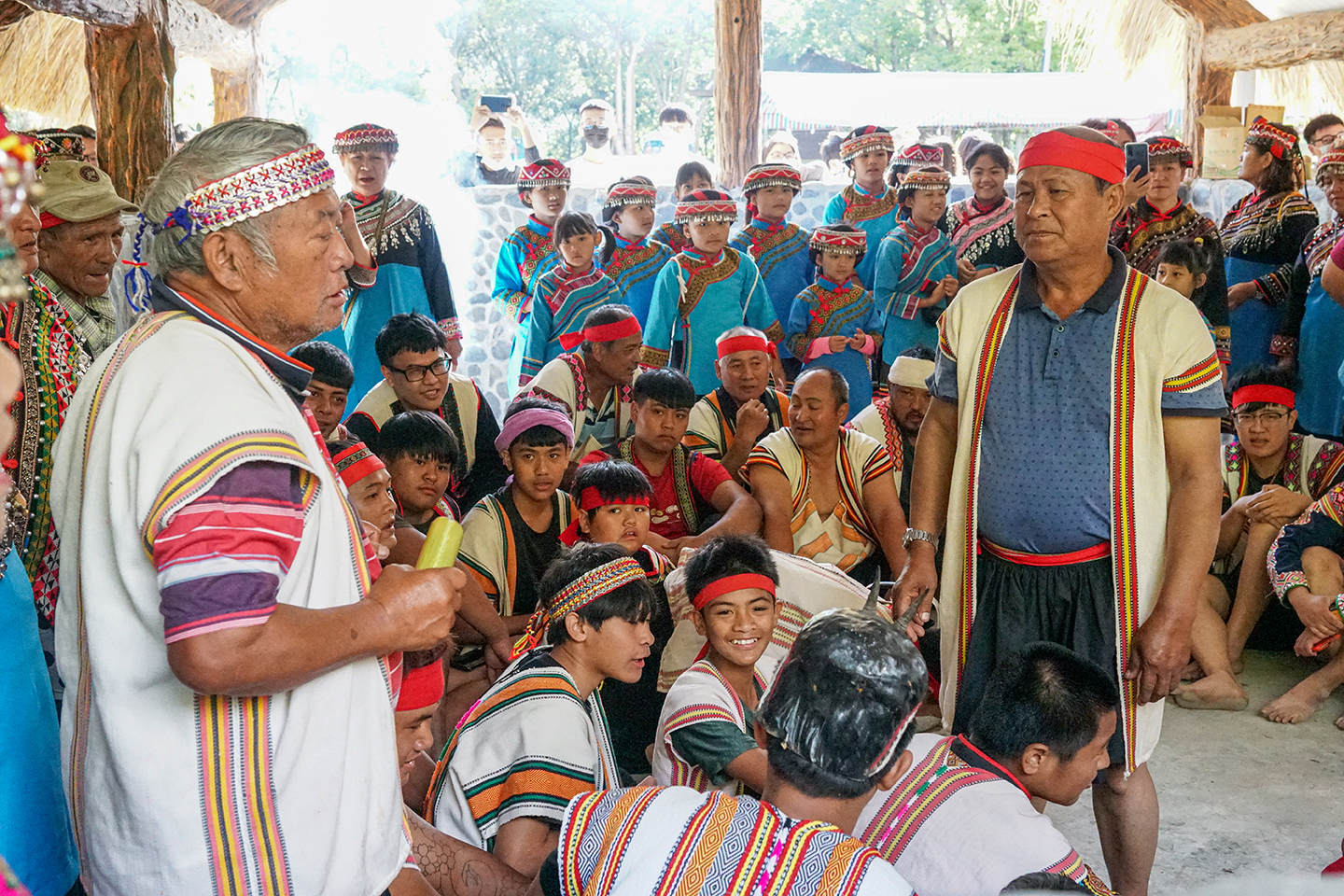
原來,以前一位來到霧鹿的天主教神父,發現到部落裡還保留著傳統的歌謠祭儀於是在1986年召集部落老人家組成「布農山地傳統音樂團」,不僅保留傳承了傳統文化更陸續赴國家劇院與歐洲、日本等地演出,並與國際知名大提琴家大衛達伶(David Darling) 合作,結合布農族的Pasibutbut和現代大提琴樂器錄製CD專輯,將布農族的傳統歌謠推向國際舞台。 而更有不少鄰近的部落族人來到霧鹿部落來學習。
A Catholic priest who came to Wulu discovered that the tribe still preserved its traditional song rituals, so he gathered the elders to form the “Bunun Mountain Traditional Music Chorus”. They not only preserved and inherited their traditional culture but also successively performed in the National Theater, Europe, Japan, and other places. They also collaborated with the world-renowned cellist, David Darling, to record a CD album combining Bunun Pasibutbut and modern cello instruments, bringing the Bunun traditional songs to the globe. Moreover, many people from neighboring villages have come to learn from the Wulu tribe.
族人們進到屋內後,領唱人便會帶領大家報戰功,領唱人唱到:「呼-呼-呼,這位帥哥哪裡來的?告訴我們,什麼姓氏?在那兒高就?有什麼豐功偉績?」回答的人基本句型為:「呼-呼-呼,我真高興,今天來到這裡,我是哪裡來的?我做過什麼事? 我要告訴你們我的血緣,我的媽媽姓什麼?」
After the clansmen came indoors, the singing chief would lead the group to report their achievements. He sang, “Hoo-hoo-hoo, where is this handsome man from? Tell us, what is your family name? Where does he work? What are his achievements?” The basic phrase of answering is: “Hoo-hoo-hoo, I'm so happy to be here today, where am I from? What have I done? I want to tell you, my bloodline. What is my mother's last name?”
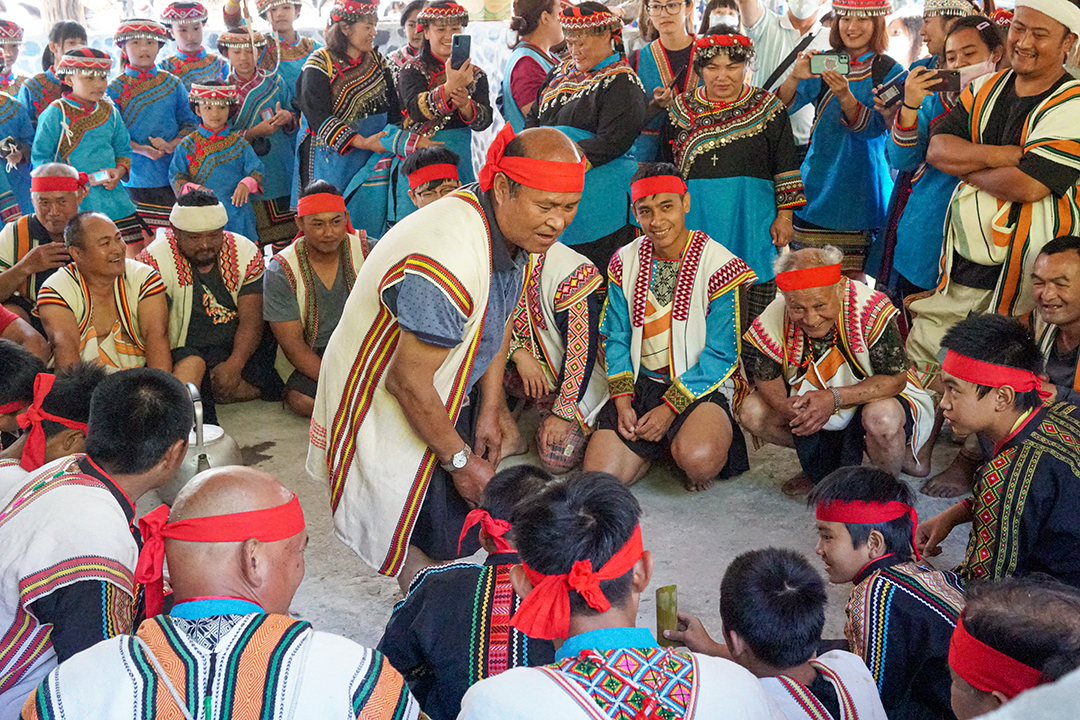
布農族是個崇尚勇武的民族,布農族也是少數原住民族群當中少數沒有頭目制度的族群,他有的只是長老的維護秩序,透過平日表現,才會得到族人認同及尊敬,所以在報戰功中,勇士們會細數自己在獵場上的豐功偉績,戰績越豐碩,聲音是越大,一旁的婦女家人們也會跳的越高。而若是沒有打獵經驗的年輕人們則會說明自己的為人處事,很開心大家相聚在一起。
The Bunun is a brave ethnic and is one of the few native groups that does not have a chief system. Order is maintained only by the elders. Only through their everyday performance, they are approved and respected by the people. Thus, when the warriors report their merits on the hunting field, they count them very carefully. The mightier the achievement, the louder the voice, and the higher their female family members will jump. If the youths have no hunting experience, they would tell their behaviors. People are very happy to get together.
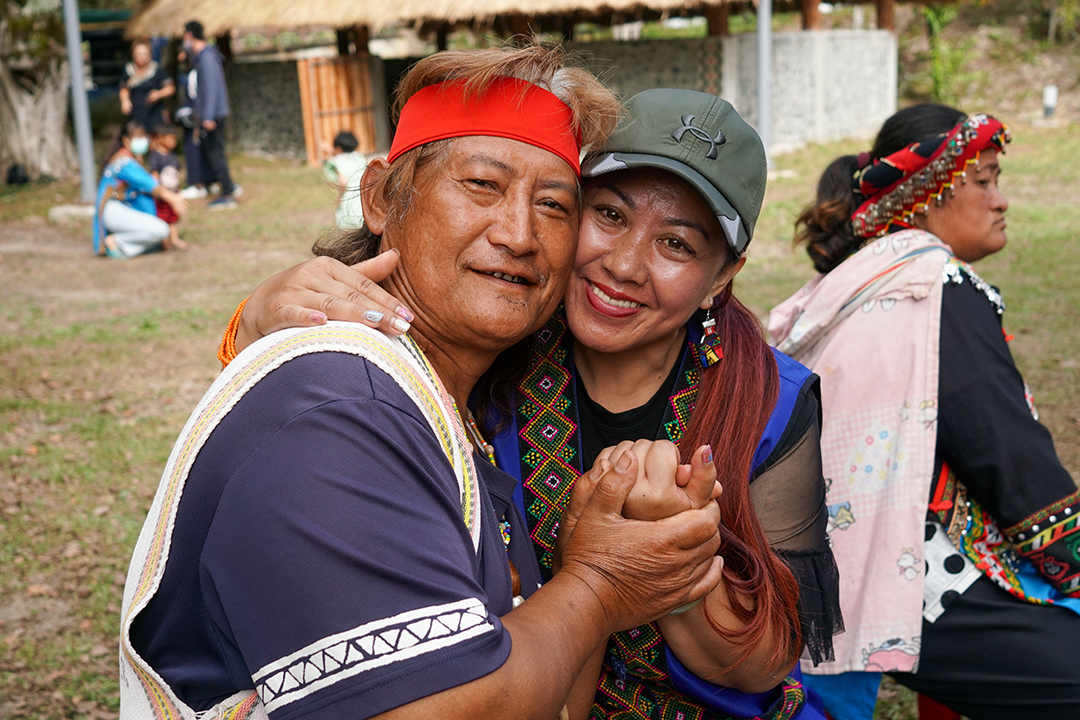
「我們唱歌,是跟著生活的。」團長kavas說部落的孩子們學唱歌,並不是死背硬記的,而是在什麼場合聽到,如果有聽過,聽一聽就會了。不論是開心的時候、想念家人的時候、祈禱的時候,每一首歌都與部落傳統生活息息相關。
“Our singing follows our lives.” Chief Kavas said that the children in the tribe do not learn the songs by rote but listen to them on any occasion. If they have heard them, they would know them eventually. No matter when we are happy, miss our family or pray, every song is relevant to our traditional life in the village.
「我一直期許我們的年輕人,不論你在哪裡你走在哪裡,我們自己的文化不要忘記。慢慢學沒關係,能學多少就學多少。但是你要記住,這個文化我們不能忘記,他是祖先留下來的智慧,靠著我們的文化你也可以佔有一席之地!身為一個布農族你應該要覺得很光榮,我們有這個文化在、我們有這個傳統在,我們永遠都是這個樣子,永遠都會!」
“I always hope that our youth will not forget our own culture no matter where they are. It's fine to learn slowly, but learn as much as you can. However, you have to remember that we cannot forget this culture. It's the wisdom inherited from our ancestors. You can have your own place with our culture! As a Bunun, you should feel honored. We have this culture, we have the tradition, we will always be in this way, always!”
聽著歌聲在山谷間悠揚傳唱有如遺世天籟,深山裡的霧鹿部落保留著傳統的部落祭儀與生活模式。就像Pasibutbut隨著一階又一階的音域升高,持續的傳承給一代又下一代的部落族人,布農族的傳統在這層層遞進的歌聲中永不停息。
The singing lingering in the valley is just like the celestial voice lost in the world. The Wulu tribe in deep mountains retains its traditional ceremony and way of life. Just like Pasibutbut rising upward and upward in each phrase, Bunun’s tradition continues to be passed down to the next generation and persists forever in this ongoing melody.
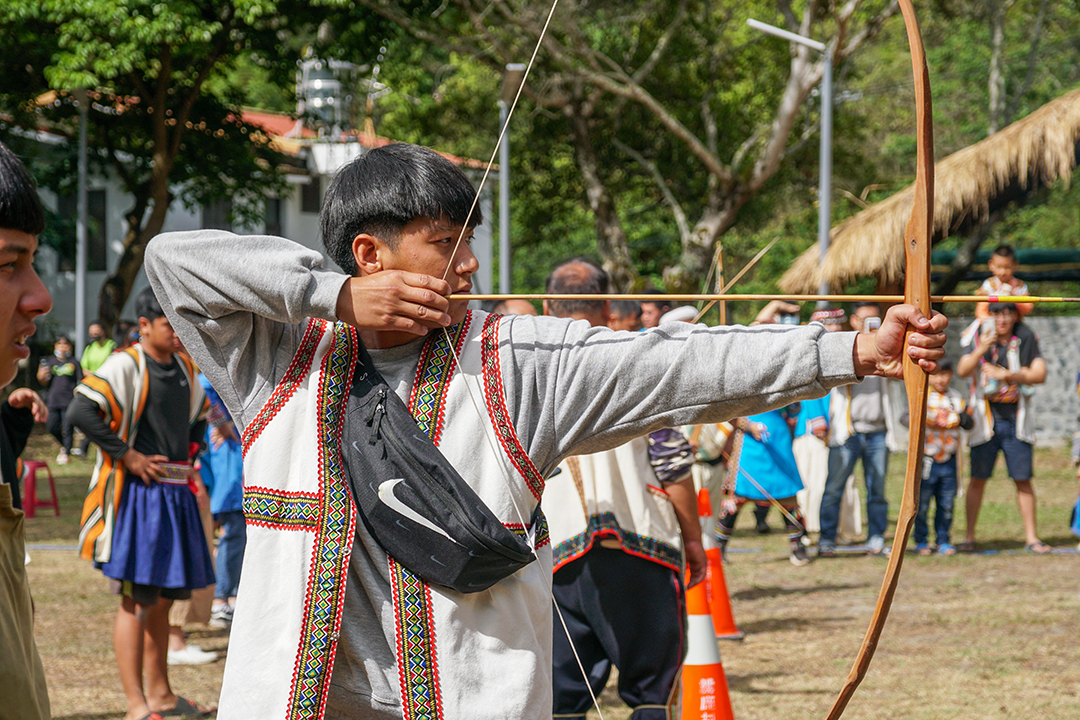
文/吳紀昀